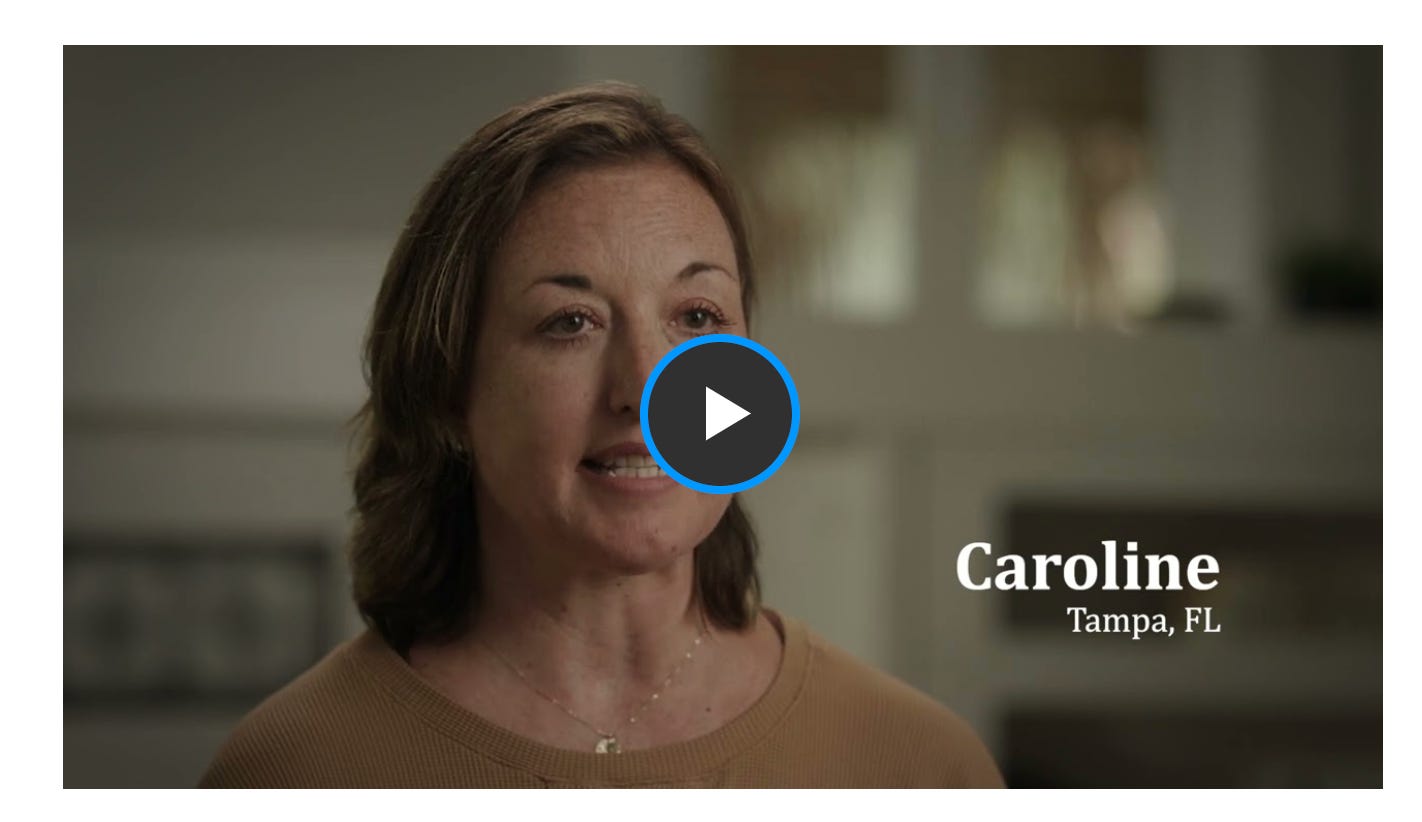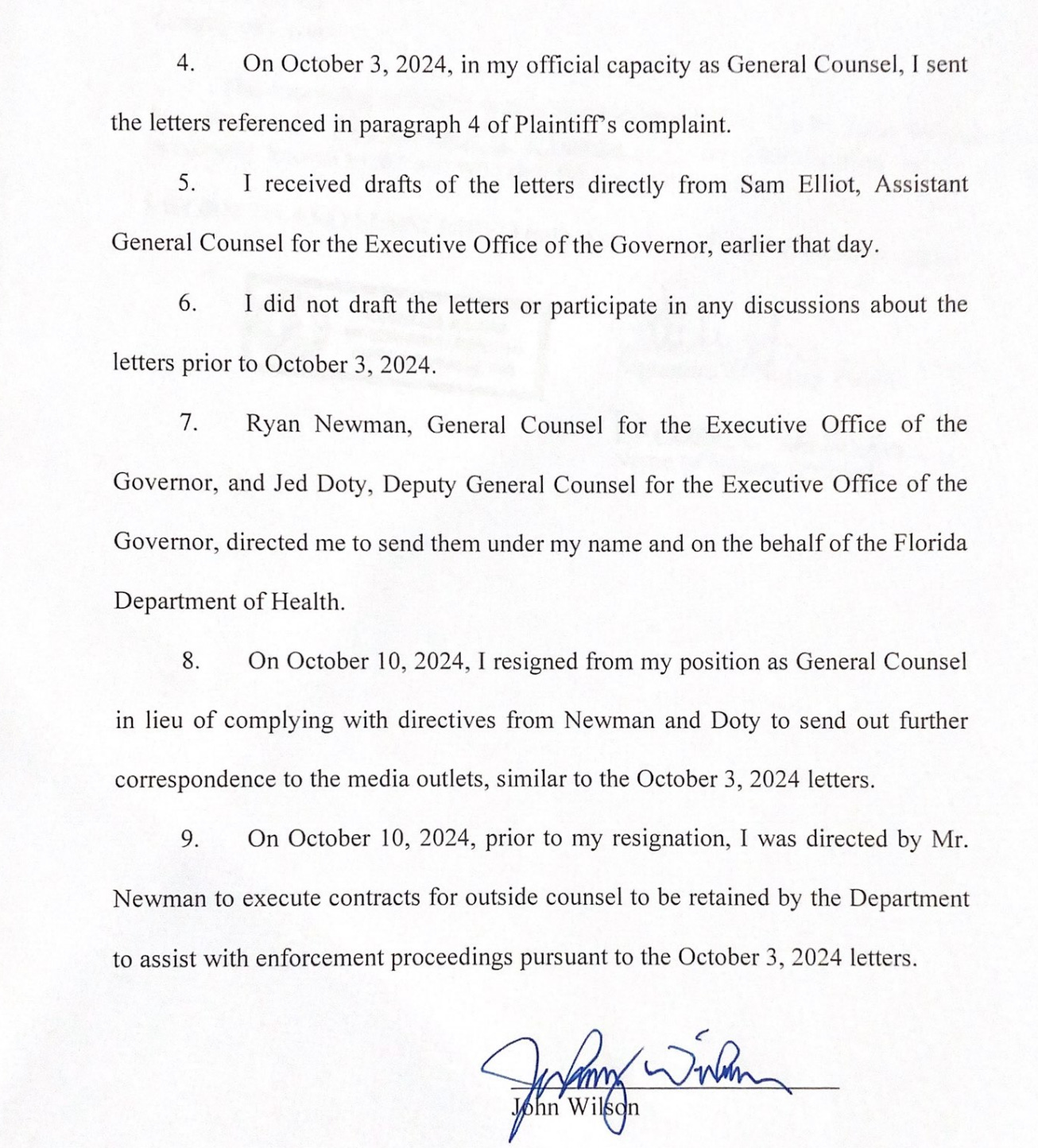First Amendment Rights for Everyone Except Abortion Supporters
Floridians have the option to protect abortion during this election by voting “yes” on Amendment 4, which reads, “No law shall prohibit, penalize, delay or restrict abortion before viability or when necessary to protect the patient’s health, as determined by the patient’s healthcare provider.” But apparently, Florida Governor Ron DeSantis doesn’t want Floridians to hear arguments in favor of the measure.
Currently, abortion is prohibited after six weeks in the state, making it all but inaccessible, as few women know they are pregnant that early. Exceptions for rape and incest are available until 15 weeks, but access depends on “documentation.” And, as in other states where exceptions for the patient’s health exist, confusion and fear of legal action mean care isn’t always forthcoming.
But Floridians Protecting Freedom (FPF), the coalition supporting the adoption of Amendment 4, had to go to court last week to protect its ability to run ads in support of the measure. They sued Florida’s state health department in federal court, alleging it shut down a television ad they placed.
In the ad, a woman identified as Caroline from Tampa, Florida, explains she was diagnosed with brain cancer while pregnant. “The doctors knew if I did not end my pregnancy, I would lose my baby, I would lose my life, and my daughter would lose her mom,” she says, adding, “Florida has now banned abortion even in cases like mine.”
That’s where things got dicey. We’re used to political battles over what laws a state should adopt when it comes to abortion, but here, the state of Florida injected itself into the election, using state agencies and state funding to try and prevent the measure from passing. The Florida health department sent cease-and-desist letters to local news stations to keep them from running the ad. A University of North Florida poll indicates that 60% of voters support Amendment 4. That is both the threshold of votes in favor it would need to become law and a number that could have interesting implications for the presidential race in Florida.
The First Amendment prohibits the government from placing prior restraints on speech, and core political speech, like the debate over adopting a constitutional amendment, is highly protected. Jessica Rosenworcel, the Federal Communications Commission chair, condemned the cease-and-desist letters, saying, “The right of broadcasters to speak freely is rooted in the First Amendment. Threats against broadcast stations for airing content that conflicts with the government’s views are dangerous and undermine the fundamental principle of free speech.”
The cease-and-desist letters were signed by John Wilson, who was the general counsel for the health department until he resigned several days after sending the letters. Today we learned more when he filed an affidavit in the case, where he swore under oath that Governor Ron DeSantis’ office ordered him to send out the letters and that he subsequently resigned rather than send out more of them. This would seem to put responsibility squarely on the governor’s doorstep.
A federal judge has already issued a temporary restraining order that prevents the state from sending additional letters. Chief Judge Mark Walker in the Northern District of Florida wrote in his order that the state had engaged in “unconstitutional coercion.” Judge Walker wrote, “Whether it’s a woman’s right to choose, or the right to talk about it, the First Amendment prohibits the State of Florida from trampling” on the First Amendment rights of freedom of choice advocates.
DeSantis, who clearly has higher political ambitions, although he failed to best Donald Trump in the Republican primary, is rightly viewed as an archconservative. That’s his right, and it’s the right of Florida voters to elect him if they choose to. But what he can’t do is use his state authorities—and taxpayer dollars—to advance his own political agenda in violation of the First Amendment. At this juncture, the courts have reined him in. That’s something we need more of—courts constraining unlawful behavior by politicians before they get too far down the road with it. But for all the focus on the presidential race, it’s clear that the culture Trump has enabled extends beyond him and that restoring democracy after the election will involve work that extends beyond Washington, D.C.
Thanks for being here with me at Civil Discourse and reading the newsletter. If you’re not already a paid subscriber, I hope you’ll decide to become one if you’re able to. Your paid subscriptions make it possible for me to devote the time and resources necessary to do this work and I appreciate your support!
We’re in this together,
Joyce




Anyone who thinks winning this election is going to solve things is living in fantasy land. It's unlikely that anyone reading this is going to live to see "democracy restored" and this battle with the MAGA fascist movement ended with their defeat. We're going to have to fight every election like it's the most important election ever, because each one will be. Until they are defeated enough to knock the wind out of their sails, every fight is going to be an existential contest between fascism and freedom. We'll have to win every one of them; they only have to win once.
I am so concerned as a doctor that lay-people can throw around 6 weeks, 15 weeks, 22 weeks etc. - it's different in every state because it is arbitrary and imposed by politicians. I am very worried about legalilty of abortions, but I would like to hear the argument on a bigger picture - that of politicians nosing into medical decisions at all. There are so many diseases and circumstances that can have religious nuances, for example, if Christian Scientists would have their way, no one would go to a doctor at all. What about Seventh Day Adventists and being a vegetarian? What about Jehovah's Witnesses not allowing transfusions? Death with Dignity? Assisted death? Choosing palliative care over resuscitation? Stem cell treatments? Genetic testing? This is the party that used to complain about big government, and they feel entitled to enter our most private moments and decisions. What next - who we marry or divorce? How many children we must have? We are saying that any bishop or politician can draw lines based on what they think is good vs. evil based on which religion? And who's whims? The implications are very much more than abortion, and if they get permission to put these restrictions on women, they will not stop their forming of our social fabric at every turn.